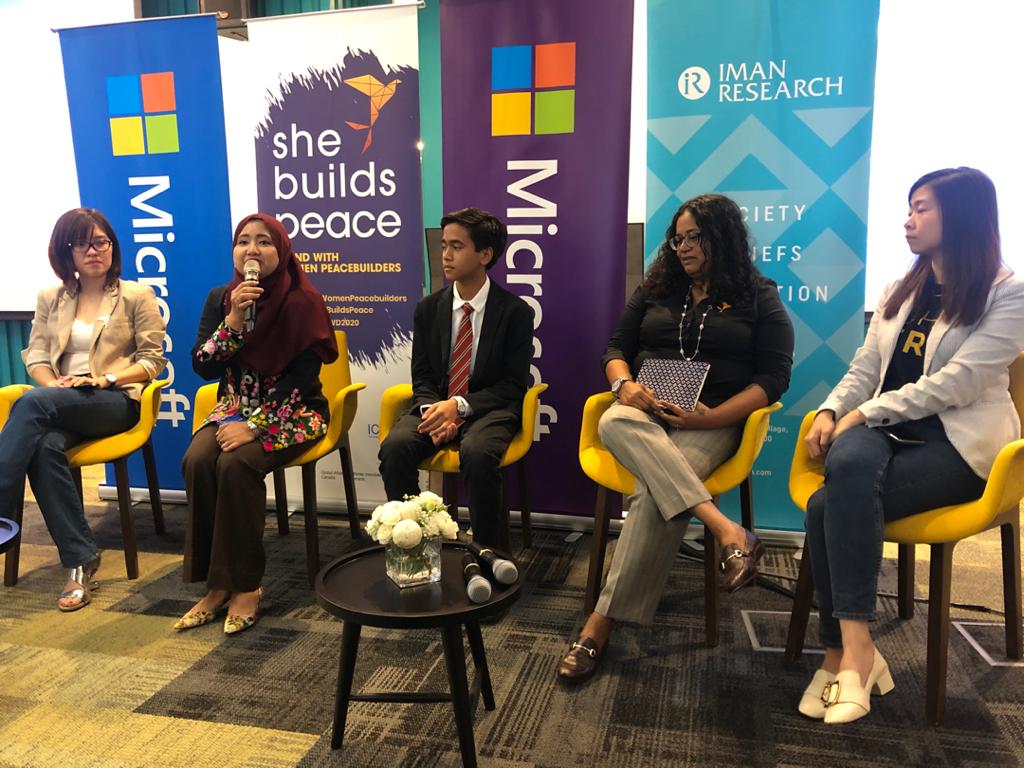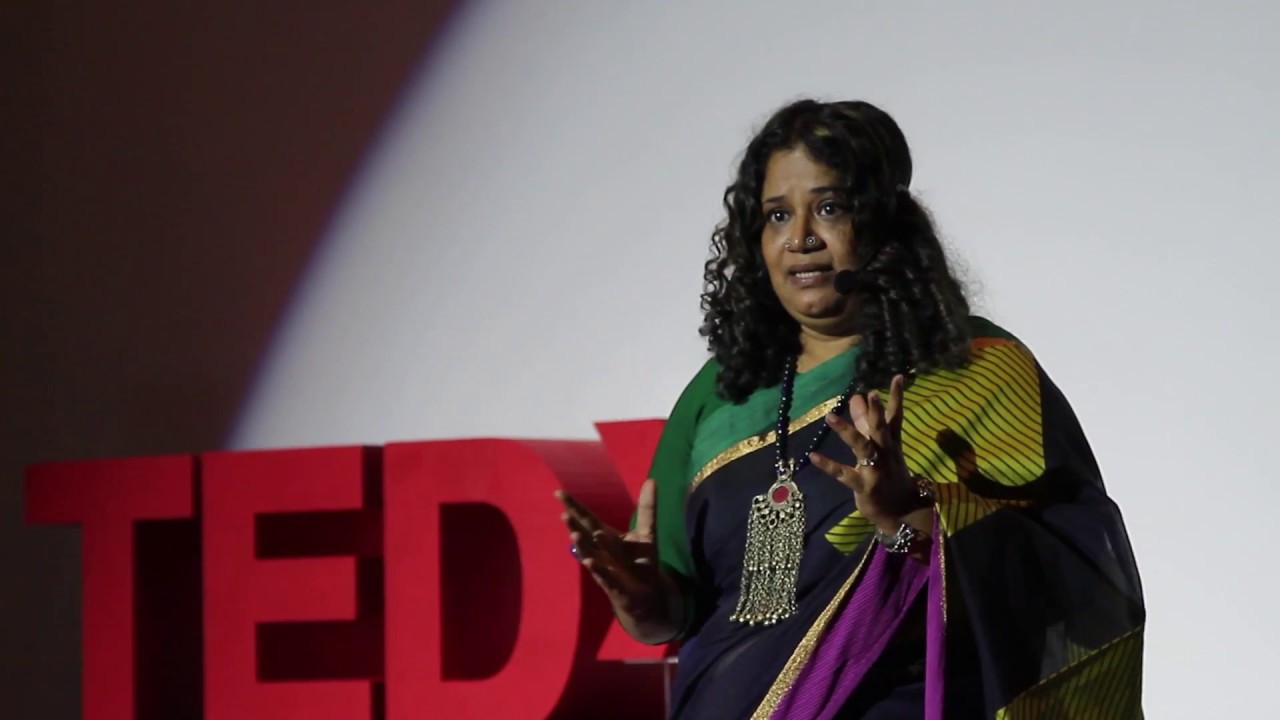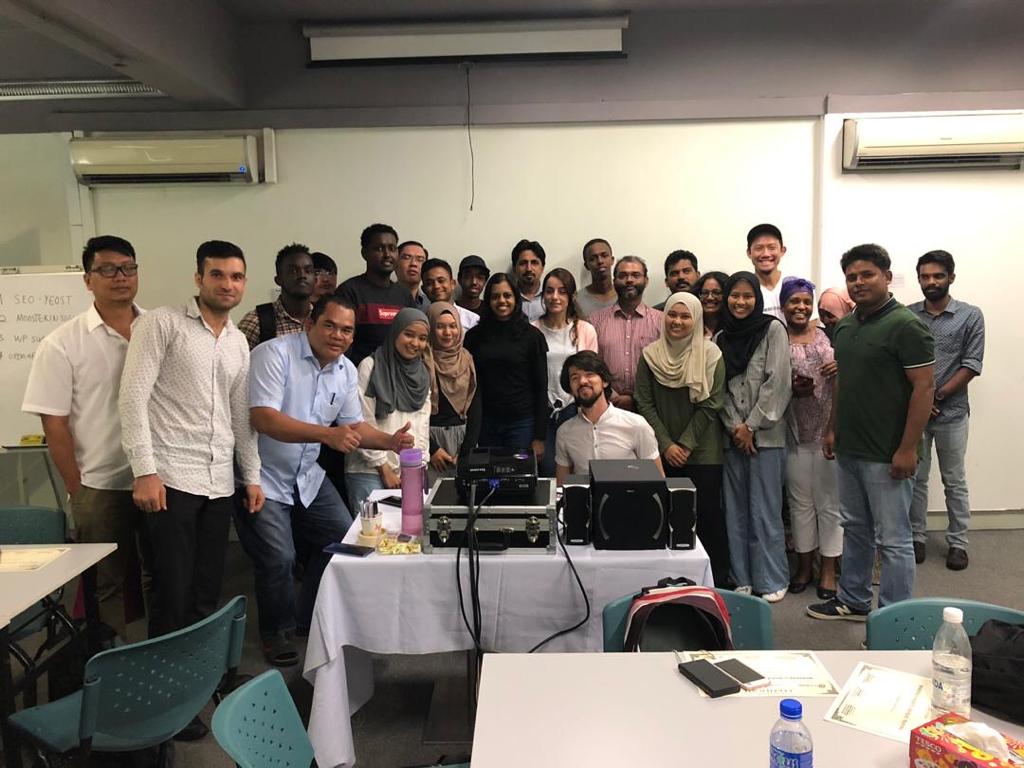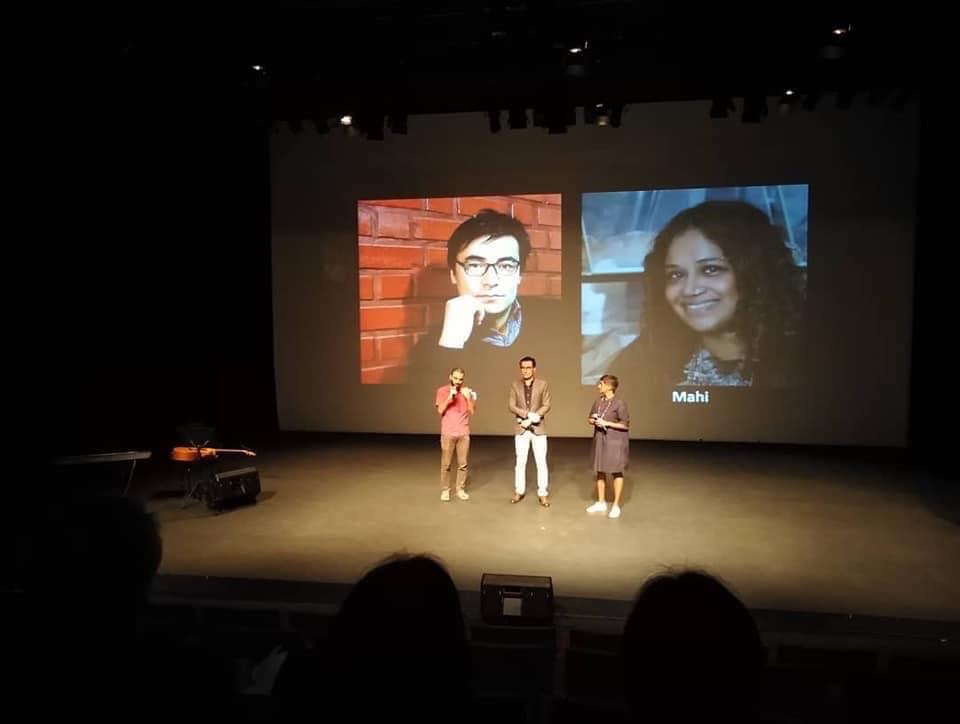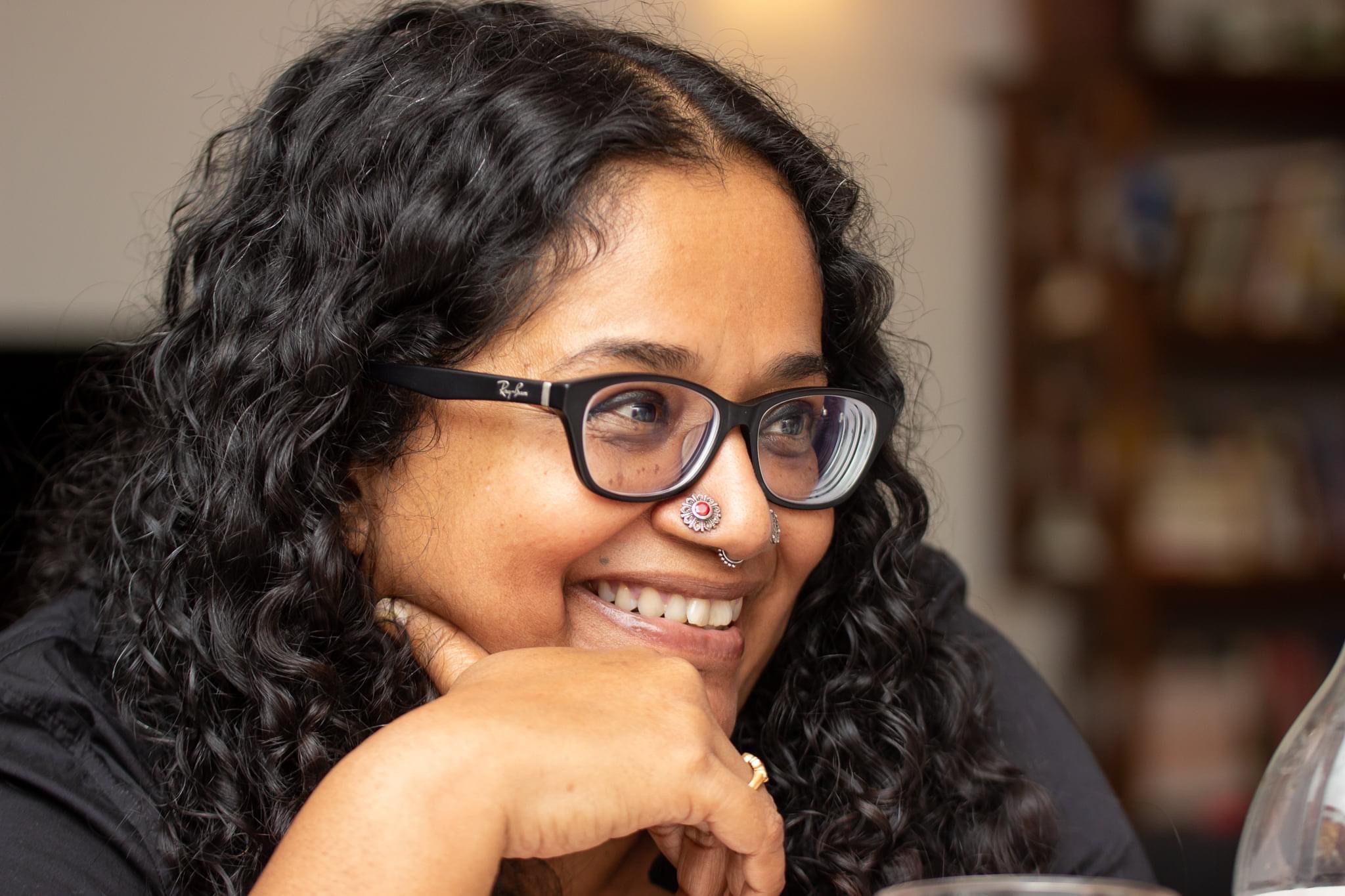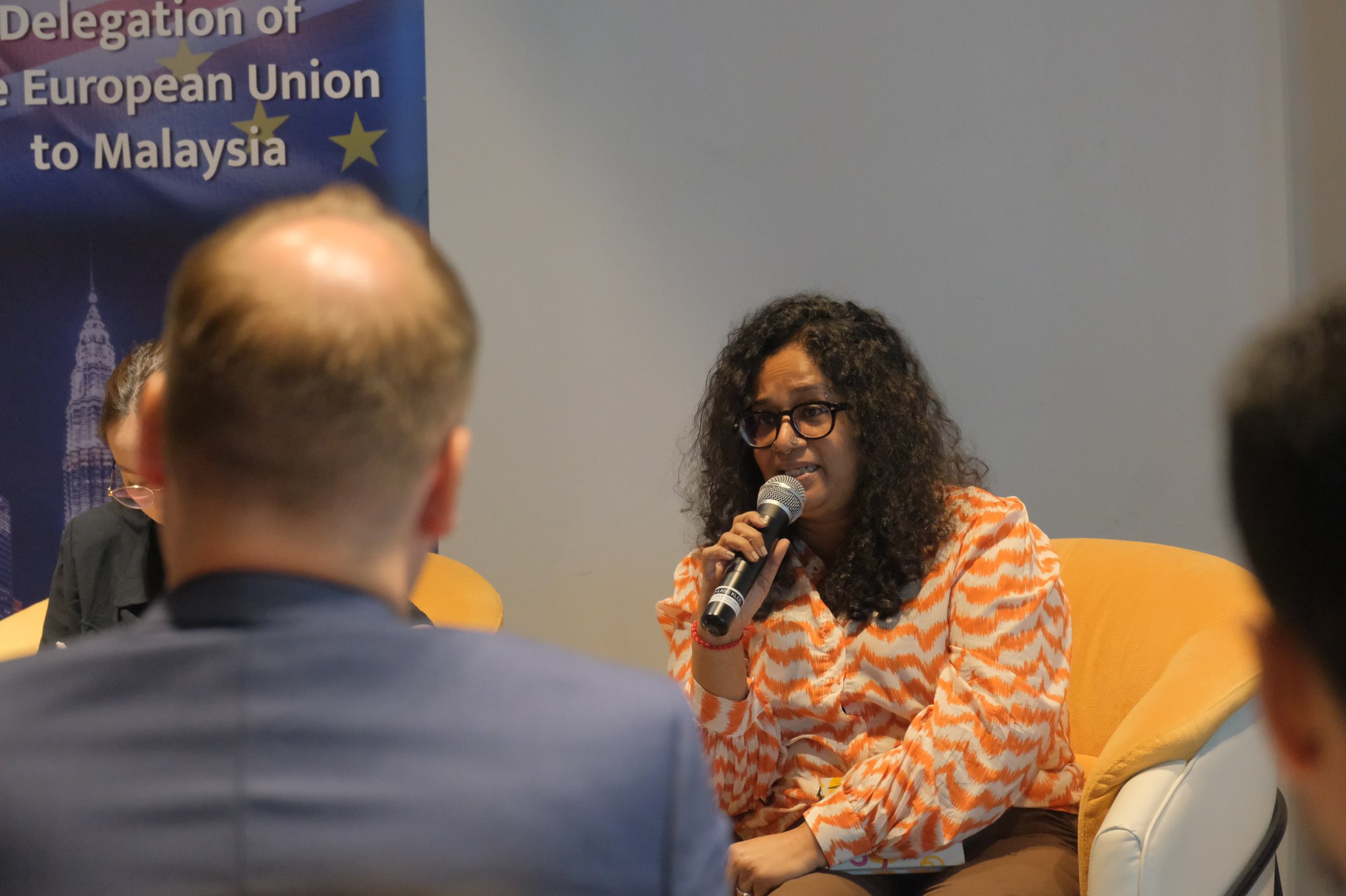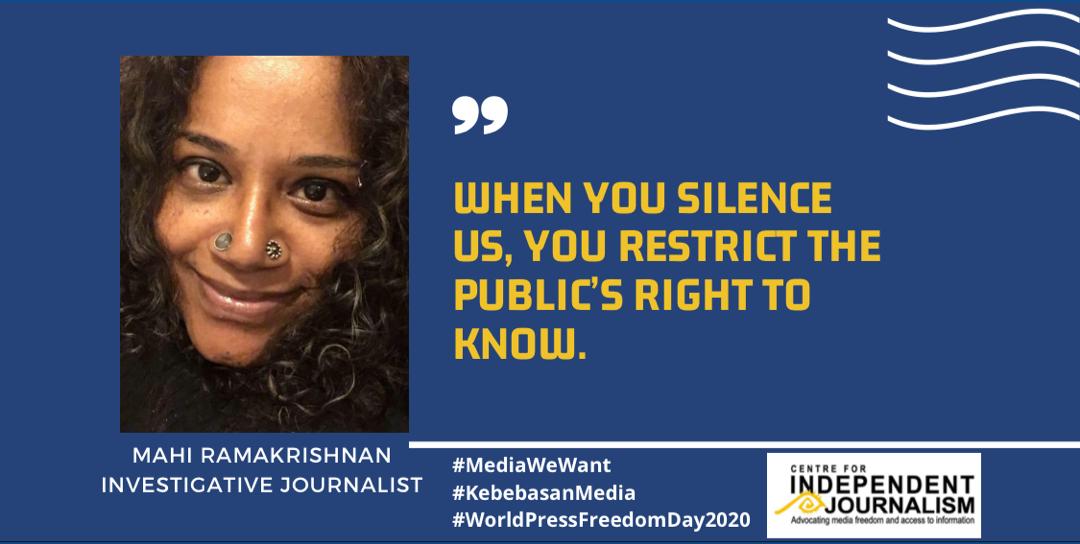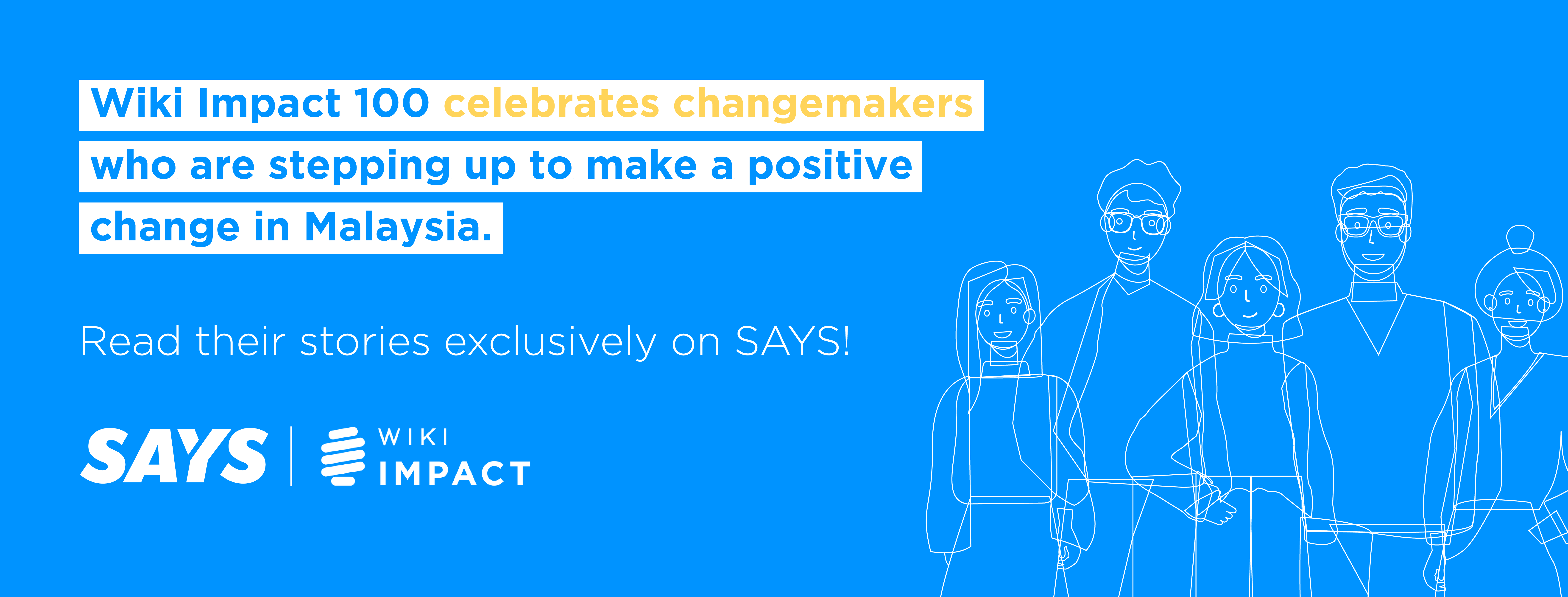This Filmmaker Is Fighting For The Rights Of The Forced Migration Community In Malaysia
Her last film, Bou, won nine international awards!
53-year-old Mahi Ramakrishnan has made it her mission to fight for the needs and rights of migrants, refugees, and asylum seekers in Malaysia
Mahi (second from right) as part of the panel during the 'She Builds Peace' campaign launch, where a dedicated group of women peace builders spoke against atrocity and hate crimes.
Image via Mahi Ramakrishnan (Provided to SAYS)"I started my career with The Sun newspaper 25 years ago, and have worked with AP, AFP, TIME magazine, VOA, BBC, CNN, USA Today, Al Jazeera, and ARD German TV in many capacities as a reporter, researcher, and producer," shared Mahi in an interview with SAYS.
Mahi's interest in becoming a voice for minorities was sparked 17 years ago, when she was assigned to work on a news report about the Rohingya people. While working on her investigate pieces, she realised there was a dire need to spread awareness about trafficking issues involving migrant workers, refugees, and children.
To raise awareness on the seriousness of trafficking, Mahi created a documentary film, Bou, which won nine international awards
"Bou, which means bride in the Rohingya language, is an investigative documentary that looks into how Rohingya children are trafficked, sexually assaulted, and sold as child brides to Rohingya men in Malaysia," shared Mahi.
Internationally, the documentary won nine awards, including at the ARFF Amsterdam/Around International Film Festival 2018, 6th Mumbai Shorts International Film Festival 2017, ARFF Paris 2017, Independent Shorts Awards, and Human Trafficking Awareness Film Festival.
By making documentaries on real-life stories, Mahi hopes to shine a spotlight on pressing issues involving minorities. On a larger scale, she also hopes to not only get the public to support these issues, but also get lawmakers to reform or create policies to protect refugee rights.
Currently, Mahi is working on an investigative film that looks at the smuggling of migrant workers from Flores, Indonesia to Malaysia. She is also working on research projects looking at hate speech and atrocity crimes.
Mahi's efforts don't just stop at making films. She also finds ways for refugees to connect with Malaysians through various activities.
Workshop conducted for refugees on how to build a website using WordPress through the 'Refugees Empowered through Technology' programme by Beyond Borders Malaysia.
Image via Beyond Borders MalaysiaAbout seven years ago, Mahi created The Refugee Fest, a four-day festival that serves as a platform for refugees to speak up through performing arts. This innovative festival was born out of a realisation that as outsiders, it's difficult for refugees to open up about their struggles and connect to Malaysian society.
At the festival, refugees are able to showcase their talents and use it as a bridge to connect with Malaysians.
Apart from The Refugee Fest, Mahi also founded a livelihood project called Biryani Wallahs, where refugees, migrants, and poor Malaysian women cook and sell biryani. Initially, the company took 40% of net profits, but as Mahi has recovered her capital, 100% of the earnings now go to the women.
In 2018, Mahi decided to put a formal framework to her efforts, and thus, Beyond Borders Malaysia was born
Beyond Borders Malaysia collaborated with The Instant Cafe Theatre and Parastoo Theatre to stage a play titled 'Blank' by Jo Kukathas, written by Iranian writer Nassim Soleimanpour. Parastoo is led by Afghan theatre director, Saleh Sepas.
Image via Mahi Ramakrishnan (Provided to SAYS)Beyond Borders Malaysia is a non-profit organisation which seeks to empower forced migrants — refugees, asylum seekers, migrant workers, and stateless persons.
When the pandemic hit, the organisation noticed that many of these groups were badly affected, and so they started distributing aid and care packages to help them get by.
"Through Beyond Borders Malaysia, we do extensive aid distribution — groceries and vegetables, as well as wellness and care packs for homeless people and women. With groceries and vegetables, we would have hit 100,000 people easily.
"We are also in collaboration with ALTSEAN-Burma and Queensland University to work on a hate speech application that will be launched soon," added Mahi.
When asked about how she felt throughout her experience working with refugees and migrants, Mahi told SAYS that she finds it heartwarming, but sometimes also feels a sense of helplessness
"The refugees and migrants have shared their intimate stories, opened their homes, and shared their food. They have accepted me as a family member and I have been incredibly privileged in that sense," said Mahi.
However, there are times where she feels that she carries an immense responsibility to help refugees after hearing about the experiences they've been through.
She lamented, "It's tough to keep telling their stories and yet be completely unable to affect changes on the ground. I know reforms take time, but it affects me emotionally, mentally, and physically.
"Let me give you an example: How do I listen to a 14-year-old tell me she was raped by more than 60 traffickers at the Malaysia-Thailand border and not be affected by the fact that I cannot do much except make a film out of it?"
After releasing Bou in 2017, Mahi couldn't bring herself to make another film for four years, as she felt useless. She went for therapy, and was diagnosed with depression and Post-Traumatic Stress Disorder (PTSD).
"People usually tell me I do so much for the forced migration community. It's not at all true. They have helped me tremendously. They have taught me about perseverance, hope, unconditional love, and to hold on to the belief that tomorrow will be better," shared Mahi.
Mahi hopes to continue her efforts in raising awareness on forced migration. One of her main goals is to help establish proper laws in Malaysia that will protect these minorities.
Mahi speaking at a panel organised by the European Union Delegation to Malaysia on women and refugees.
Image via Mahi Ramakrishnan (Provided to SAYS)She explained, "Forced migration is an evolving issue. So, I cannot really talk about end goals. It's an ongoing social and political issue.
"I would be happy to have political engagement with the Home Minister and Human Resources Minister to talk about the right to work for refugees, re-documentation of undocumented migrants, to establish a moratorium on immigration raids, and to allow the United Nations High Commissioner for Refugees (UNHCR) to visit detention centres.
"We would like to work through progressive MPs to lobby the government to look at hate speech seriously because it has grave consequences. This includes reprimanding politicians who use the play of religion on politics for political gains or get away free despite stirring racial sentiments."
What can you, the rakyat, do?
Mahi participated in a campaign for World Press Freedom Day 2020 organised by the Centre for Independent Journalism.
Image via Mahi Ramakrishnan (Provided to SAYS)According to Mahi, Malaysians' perception of forced migration communities are divided, partly because the government has and continues to demonise them. That's why her suggestion is for there to be a political will on the part of the government to create awareness.
She suggested, "MPs and ADUNS should talk in parliament and the state assembly about the different groups of people who are a part of the larger Malaysian society, and how we need to protect their rights and interests."
Mahi urges those who are not hostile towards forced migrants to ensure that refugees, asylum seekers, migrants, and stateless persons are on the political agendas of their elected representatives.
"I am confident that if we work towards it, the situation will change for the better. I believe we are much more than the hate and xenophobia," she said.
SAYS is featuring inspiring stories of extraordinary Malaysian changemakers in collaboration with Wiki Impact
Wiki Impact is an online platform dedicated to the impact industry. They share stories and data on issues that matter, highlighting impact-driven organisations and changemakers on the ground. Categories include poverty alleviation, social justice, gender equality, healthcare and education for all, environmental sustainability, animal welfare, impact influencers, and more!
Find out more here.
